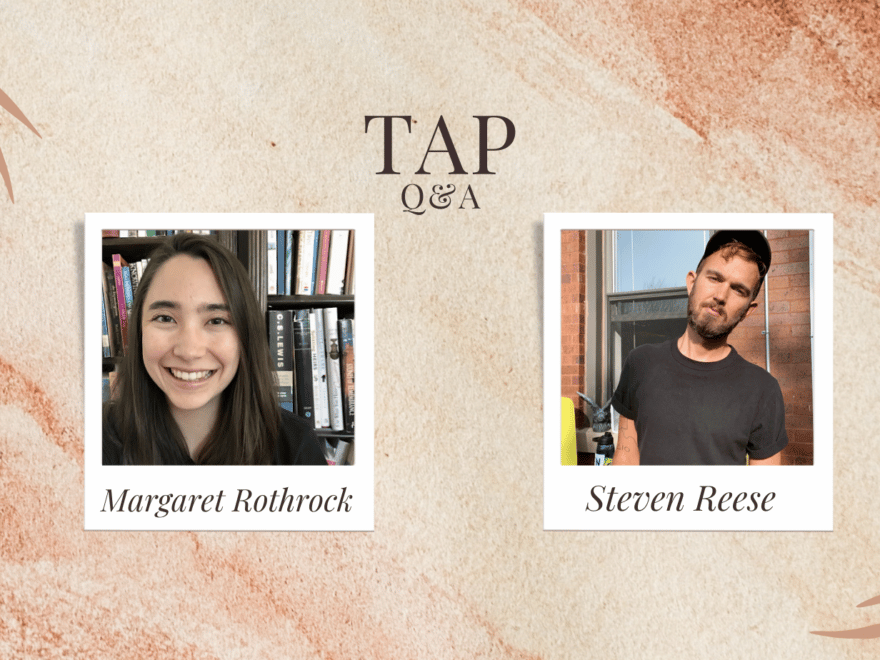MAWRD students who are interested in pursuing a Ph.D. or teaching career are encouraged to apply for the Teaching Apprenticeship Program (TAP) during their time in graduate school. This program gives grad students the chance to teach WRD 103 – Composition and Rhetoric and gain a full teaching experience for a quarter. They are also paid a stipend for their work.
We caught up with the two graduate students (Margaret Rothrock and Steven Reese) participating in TAP this autumn quarter to learn a little more about their experiences in the apprenticeship.
What were you expecting from your TAP experience?
Maggie: I was really hoping just to get experience teaching a classroom. I’ve helped in an elementary school classroom before, and I worked in writing centers for three years in both undergraduate and graduate school, but I was really excited to put my experiences together and see if classroom teaching was right for me.
Steven: I was expecting to be challenged and stretched thin–I’m doing this while also working a full-time job, so I knew I was going to be busy. In general, though, I was expecting to get the experience in front of a classroom that I haven’t had thus far and that I know to be important for when I’m applying for teaching jobs next year. I figured that it would be the perfect experience for someone like me who wants to teach, has zero experience, and needs some structured support in place as I gain that teaching experience.
What have you learned about teaching since the start of the quarter?
Maggie: So many things! One thing that I knew already, but that has been confirmed a dozen times, is that setting expectations from the beginning is super important for a functional classroom. I’ve also learned a lot about what to expect from a discussion or activity and how I can prepare those things in a way that gets students engaged. Maybe most importantly, I’ve learned that flexibility is key. A classroom isn’t something a teacher makes; it’s a collaborative space that is navigated by many people together. That means that things will be chaotic or go wrong sometimes, but it also means that everyone, including the teacher, has a multitude of things to learn.
Steven: I’ve learned that it’s a lot more exhausting than I thought! It takes a lot of energy to stand up there, be engaging and engaged, and be “in charge” of the day’s proceedings. I’ve also learned how individualized teaching needs to be–what works and connects for one student won’t necessarily do that for another, and getting to know my students as individuals has definitely shaped how I teach and communicate with each of them.
Has your teaching pedagogy changed at all since starting the TAP program?
Maggie: I’ve definitely come to recognize the importance of goal-setting for each class, so I’ve been putting more effort into getting really specific about how I see the content fitting into our past content and how I can get my students to see those connections themselves. As the quarter has progressed, I’ve also tried out different methods for facilitating small groups and whole groups to try to adjust to the needs of the group.
Steven: My teaching pedagogy is still developing, and the experience of TAP is undoubtedly going to be a huge influence. I can’t say that anything has changed, but I can say that my teaching philosophy has thus far been confirmed by this experience. I see the most effective way of teaching writing as being to encourage freedom and the space for discovery. I view my writing classroom as a workshop–a setting where each student can work on their own individual projects and goals in the same space at the same time, a space populated with resources and tools to shape their work. I consider myself and the other students in class perhaps the most important resources in that workshop. I value the collaborative aspects of writing, and I’ve found my experience teaching in TAP to confirm the value I place in this.
Any advice for upcoming TAP folks?
Maggie: Be yourself and take the job with a sense of humor. If you have fun, your students will have more fun. Also, get out from behind the podium and write on the whiteboard. Something about doing that makes discussions feel more personal and lively, and students really feel like their ideas are being taken to heart. (And, you can make your students take physical notes! What could be better?)
Steven: My biggest concern going into TAP was this feeling of imposter syndrome–who was I to stand in front of a classroom and teach WRD 103? I’m still a student myself! I found that this feeling vanished pretty quickly–even after the first couple of classes. Believe it or not, you do know what you’re talking about and what you’re doing! It’s not too different from leading discussions in your other graduate courses, and you’ve already mastered that. So my advice is to go into this with the right amount of nerves, but overall confidence. You know so much already, and you’re going to learn a lot more in the process.
